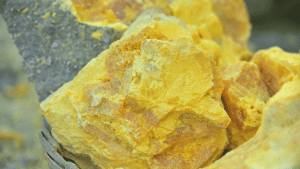Have you ever filled a glass with water only to be hit with an unsettling smell of rotten eggs? If you’re questioning, “What causes my water smell like rotten eggs?” you’re not alone. This notorious rotten egg smell often stems from hydrogen sulfide gas or sulfur bacteria in your water heater or plumbing system, converting your once refreshing tap water into sulfur-smelling water that’s far from appealing.
What’s the crux of this issue? The unpleasant odor is primarily caused by hydrogen sulfide gas produced by bacteria thriving in your water heater, mainly if it houses a magnesium anode rod or within your building’s distribution system. Besides the off-putting smell, it can even cause black stains on your silverware and plumbing fixtures.

From tweaking your water heater temperature and employing a water softener to replacing your heater’s magnesium anode, you can bid farewell to that rotten egg smell. By the end of this article, you’ll be armed with the knowledge to tackle this issue, ensuring your water stays fresh and
inviting.
How to Detect if Your Water Smells Like Rotten Eggs?
Ah, the dreaded rotten egg smell in your water. Is hydrogen sulfide gas the culprit? Here’s how to detect it.
Start by turning on all the faucets, letting hot and cold water flow. Sniff each. If only your hot water smells like rotten eggs, your water heater might be the source. But if both hot and cold water smell, it could be your entire water supply.
Go deeper by flushing your water heater tank with a chlorine bleach solution. If a strong rotten egg odor persists after several hours, sulfate-reducing or sulfur bacteria-producing hydrogen sulfide gas could be at play.
Consider purchasing test kits to detect hydrogen sulfide, iron and sulfur bacteria, and other harmful contaminants. Use a water softener or carbon filter to relieve the sulfur smell and harmful contaminants temporarily.
Sniffing out if the water smells like rotten eggs isn’t a problem with these tips. And while the rotten egg smell can be off-putting, there are ways to fix it – stay tuned for our next section!
The Science Behind the Smell: Sulfur Compounds
At the heart of it, all is a gas named hydrogen sulfide. This is a naturally occurring gas produced by certain types of bacteria, such as sulfur and iron. These bacteria thrive in environments with low oxygen, like in your well or distribution system, and are common culprits in making your water smell like rotten eggs.
The scenario can play out differently in water heaters. Inside is a metal rod called the anode rod that helps protect against corrosion. When your water heater is functioning, a chemical reaction occurs between this rod and the sulfate in your water.
When you turn on the hot tap, this chemical reaction can produce hydrogen sulfide gas, leading to that unwanted rotten egg smell. The phenomenon is especially prevalent in hot water due to the warm environment that accelerates chemical reactions.
Additionally, if your water supply has too much sulfur, sulfate-reducing bacteria can thrive and result in a similar situation. So, the sulfur smell in your cold water can also be due to these bacteria.

3 Primary Reasons Why Your Water Might Smell Like Rotten Eggs
A. Presence of Hydrogen Sulfide in Groundwater
One of the leading causes of that notorious rotten egg smell in your water is the presence of hydrogen sulfide. This gas naturally occurs in groundwater and can infiltrate your building’s water supply. While it’s not typically harmful at low concentrations, its smell can be quite unsettling when you’re about to drink water or take a hot shower. It’s a common problem but not a problem without a solution.
B. Contamination by Sulfate-reducing Bacteria
If your water supply smells like rotten eggs, you may have contamination by sulfate-reducing bacteria. These bacteria thrive in your well and plumbing system and can contribute to the production of hydrogen sulfide gas. They usually prefer areas with low oxygen, such as the depths of your well or the far reaches of your plumbing system. They interact with sulfate in your water supply to create that unpleasant rotten egg smell. They’re the kind of guests you don’t want to keep around, so learning to manage them effectively is critical.
C. Interaction with the Anode Rod in Water Heaters
Lastly, if the smell is predominantly from your hot water, your water heater could be the primary culprit. The interaction between the anode rod (a component that protects corrosion) and the naturally occurring sulfur in your water can lead to this off-putting smell.
A chemical reaction inside the hot water heater can produce hydrogen sulfide gas, especially when the water temperature is high. This occurrence is more likely to happen with hot water heaters, which provide a warm environment that speeds up these chemical reactions.
How to Eliminate the Rotten Egg Smell from Your Water
Now that we’ve identified why your water might smell like rotten eggs, let’s discuss how to tackle this issue. Here are three effective ways:
1. Use a Water Filter or Water Softener
A water filter or water softener is a convenient and effective tool for treating a sulfur bacteria problem. These devices can help filter out hydrogen sulfide gas, iron bacteria, and other contaminants, thereby eradicating harmful elements from your water. Some water softeners are designed to neutralize the sulfur smell, while filters can trap hydrogen sulfide and other impurities, leaving your water clean and odor-free. For the best solution, you may want to consult with a water heater dealer or purchase test kits to determine the level of contamination in your water supply.
2. Flushing the Water Heater
Another way to eliminate the rotten egg smell is by flushing your hot water heater. Over time, the chemical reaction inside the heater between the sulfur in your water and the anode rod can lead to a buildup of hydrogen sulfide gas. Regularly flushing your heater using a drain valve can remove this gas and any dead bacteria contributing to the smell. Always consult your heater’s manual or a professional before flushing for safety reasons.
3. Regular Maintenance and Inspection
Maintenance and regular inspection of your entire water system, including the cold faucets and hot water heater, are vital in preventing and eliminating the rotten egg smell. This approach helps spot issues early on and ensure your system operates efficiently. You can check the system’s components, like the anode rod, to provide proper corrosion protection and maintain water quality.
Wrapping Up
We know that dealing with a water supply that smells like rotten eggs can be off-putting, to say the least. Hot water shouldn’t remind you of sulfur bacteria or trigger thoughts of iron bacteria working a chemical reaction inside your pipes. No, your hot or cold water should be fresh, clean, and ready for drinking or bathing without leaving you holding your nose.
So, if you’re at the point where you’ve tried everything, or perhaps you’re just not sure where to begin—don’t worry. We’re here to help. At WildHeron Drilling, our team of experts is always ready to provide support, advice, and practical solutions tailored to your specific situation.
Whether it’s providing corrosion protection for your system, flushing out dead bacteria, or offering a comprehensive water treatment, we’ve got you covered.
Ready to say goodbye to that rotten egg smell in your water? Contact us today for a quote and let’s make that a thing of the past. After all, your water should be something you enjoy, not something that turns you away. Let’s get started!

